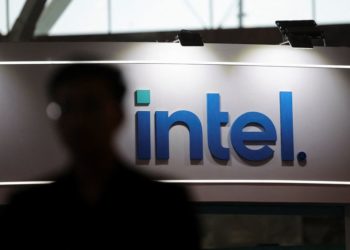(Bloomberg) — US-China tech tensions are flaring again, with Beijing threatening legal action against anyone enforcing Washington’s restrictions on Huawei Technologies Co.’s chips, casting a shadow over a recent trade truce and efforts to sustain dialogue.
Most Read from Bloomberg
China’s Commerce Ministry said in a Wednesday statement that entities could breach the Anti-Foreign Sanctions Law by assisting in the US curbs, without specifying the punishment. The move escalates the tech dispute even as Chinese officials express their wish to improve relations.
The US Commerce Department had warned that using the Huawei semiconductors “anywhere in the world” would violate US export controls before later removing the place reference. China has said the Trump administration’s actions on chips undermined recent trade talks in Geneva.
Wu Xinbo, director at Fudan University’s Center for American Studies in Shanghai, said the amendment suggests continued contact between the two sides, at least at the working level.
“The challenge is how both sides can keep the momentum gained from the Geneva talks,” he said. “I hope there can be high-level talks next month. But nothing’s guaranteed at the moment.”
On the same day of the Chinese warning, Vice Foreign Minister Ma Zhaoxu told new US ambassador to China, David Perdue, that Beijing hopes the US will work together to promote ties.
This followed a meeting the day before between People’s Bank of China Governor Pan Gongsheng and former US Treasury Secretary Timothy Geithner, now chairman of Warburg Pincus, according to a brief statement from the central bank.
In a separate sitdown between Chinese Foreign Minister Wang Yi and Asia Society CEO Kyung-wha Kang on Tuesday, China’s top diplomat said China and the US should work toward finding the right way to get along by fostering positive engagement in the Asia-Pacific region first.
The flurry of exchanges comes after high-level talks in Switzerland earlier this month, where both nations agreed to a 90-day pause in some reciprocal tariffs, although substantial levies remain on Chinese imports.
These interactions appear to be part of Beijing’s effort to maintain dialogue while conflicts concerning US curbs on semiconductors and China’s control over critical minerals show little sign of resolution. China’s alleged role in fentanyl’s flow into the US also remains a significant point of contention, with American officials pressing China for greater cooperation.
The simultaneous trade thaw and persistent dispute over access to technology underscore the challenge of resolving the economic conflict between the world’s two largest economies.
“My instinct is that tariffs are on a somewhat independent track from weaponizing supply chains. The logic is different,” said Graham Webster, who leads the DigiChina project at the Stanford University Cyber Policy Center.
Webster suggested that if the countries reach a more comprehensive trade deal, “the tech restrictions on one or both sides will be on the table.”
Most Read from Bloomberg Businessweek
©2025 Bloomberg L.P.
The post US-China Tensions Over Chips Risk Hurting Trade Truce, Dialogue appeared first on Bloomberg.




